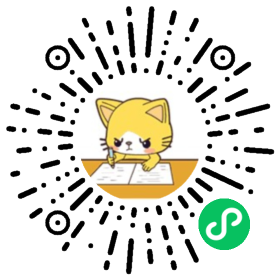相关试题
【单选题】
共产主义新人的重要体现是
A. 人们的精神境界得到极大提高
B. 人们的劳动能力得到极大提高
C. 人们的阶级觉悟得到极大提高
D. 人们认识世界的能力得到极大提高
【单选题】
对共产主义社会“和谐”的错误理解是
A. 人与人之间是和谐的
B. 人与社会是和谐的
C. 人与自然是和谐的
D. 消除了一切矛盾
【单选题】
共产主义社会,( )成为“生活的第一需要”。
【单选题】
下列说法,错误的是
A. 共产主义社会不会是一种不需要也不能够进一步改善和发展的社会
B. 共产主义社会是一种没有任何矛盾的社会
C. 共产主义社会将在一个更高的基础上不断发展和前进的社会
D. 共产主义社会一定能够实现,这是由人类社会发展的客观规律决定的
【单选题】
下列说法正确的是
A. 以往的社会是仅仅属于极少数人的自由天堂
B. 以后的社会更是属于多数人的自由天堂
C. “大同世界”是一种理想的社会
D. 共产主义社会才是属于多数人的自由天堂
【单选题】
在马克思的时代已有过多种社会主义.共产主义学说,但它们大都属于()性质的理论。
【单选题】
马克思是从( )得出社会主义.共产主义结论的。
A. 普遍理性
B. 永恒正义
C. 道德需求
D. 实践原则
【单选题】
在共产主义社会,( )是全部生产资料的主人。
A. 无产阶级
B. 人民群众
C. 工人
D. 共产党
【单选题】
共产主义社会的特征简单概括为三个方面:即物质财富极大丰富.人们( )极大提高.每个人自由而全面发展。
A. 思想觉悟
B. 精神境界
C. 道德品质
D. 综合素质
【单选题】
共产主义是建立( )基础上的。
A. 在对人类社会发展规律的科学认识
B. 共产党的主观愿望
C. 马克思主义理论
D. 无产阶级的信仰
【单选题】
共产主义社会的实现有其物质基础和
A. 现实可能
B. 客观性
C. 规律性
D. 现实途径
【单选题】
资本主义国家改变了对殖民地的剥削方式,推行他们的( )战略,带动了资本的国际循环与周转,为西方战后的繁荣带来了机遇。
A. 经济全球化
B. 新殖民
C. 发展
D. 经济
【单选题】
( )是走向共产主义的必由之路
A. 社会主义
B. 资本主义
C. 垄断资本主义
D. 封建主义
【多选题】
作为一个完整的科学体系,马克思主义理论体系的三个主要组成部分是( )。
A. 马克思主义政治学
B. 马克思主义政治经济学
C. 科学社会主义
D. 马克思主义哲学
【多选题】
广义的马克思主义包括( )。
A. 马克思创立的理论
B. 恩格斯创立的理论
C. 毛泽东思想
D. 中国特色社会主义理论体系
【多选题】
马克思主义创立的直接理论来源是( )。
A. 德国古典哲学
B. 自由主义
C. 英国古典政治经济学
D. 英法空想社会主义
【多选题】
马克思主义的基本立场是( )。
A. 以无产阶级的解放为己任
B. 以人的自由全面发展为美好目标
C. 一切为人了民,一切依靠人民
D. 以全人类的解放为己任
【多选题】
马克思主义基本方法包括( )。
A. 实事求是的方法
B. 辩证分析的方法
C. 社会基本矛盾和主要矛盾分析的方法
D. 历史分析的方法
【多选题】
马克思主义基本原理是指( )。
A. 马克思主义基本立场
B. 马克思主义基本观点
C. 马克思主义基本方法
D. 马克思主义的革命性
【多选题】
马克思主义的鲜明特征是( )。
A. 科学性和革命性
B. 实践性
C. 人民性
D. 发展性
【多选题】
马克思主义在当代具有重大价值,是由于( )。
A. 是观察当代世界变化的认识工具
B. 是指引当代中国发展的行动指南
C. 是引领人类社会进步的科学真理
D. 产生于19世纪40年代
【多选题】
我们如何时掌握和运用学习马克思主义,( )。
A. 努力掌握马克思主义的立场.观点.方法
B. 坚持理论联系实际的学风
C. 自觉将马克思主义内化于心.外化于行
D. 照搬照抄马克思主义的书本
【多选题】
马克思两个最伟大的发现是( )。
A. 辩证法
B. 劳动价值论
C. 唯物史观
D. 剩余价值学说
【多选题】
学习马克思主义基本原理的方法( )。
A. 认真学习马克思主义的著作
B. 一切从实际出发
C. 理论联系实际
D. 实事求是
【多选题】
作为马克思主义产生阶级基础的19世纪三大工人起义是( )。
A. 巴黎公社
B. 1831年和1834年法国里昂工人两次起义
C. 1838年在英国爆发的延续十余年的宪章运动
D. 1844年德国西里西亚工人起义
【多选题】
列宁科学地剖析了帝国主义的( ),提出社会主义革命可能在一国或多国首先发生并取得胜利的论断。
A. 经济基础
B. 深刻矛盾
C. 统治危机
D. 资本论
【多选题】
马克思主义科学性的重要体现在于( )。
A. 科学的世界观
B. 科学的方法论
C. 辩证唯物主义
D. 历史唯物主义
【多选题】
( )是马克思主义革命性的集中表现。
A. 彻底的批判精神
B. 鲜明的无产阶级立场
C. 实事求是
D. 在实践中检验和发展真理
【多选题】
19世纪的三大科学发现,即( )为马克思主义的产生提供了自然科学前提。
A. 能量守恒与转化定律
B. 细胞学说
C. 生物进化论
D. 勾股定律
【多选题】
马克思主义的基本观点包括( )。
A. 世界统一于物质
B. 物质决定意识
C. 浪漫主义
D. 社会存在决定社会意识
【多选题】
马克思和恩格期完成了( )的转变,为创立马克思主义奠定了思想前提。
A. 从唯心主义向唯物主义
B. 从革命民主主义向共产主义
C. 从无产阶级向资产阶级
D. 从唯物主义向唯心主义
【多选题】
马克思和恩格斯合写的经典著作有( )。
A. 《共产党宣言》
B. 《在马克思墓前的讲话》
C. 《神圣家族》
D. 《德意志意识形态》
【多选题】
马克思主义的人民性表现在( )。
A. 人 民至上是马克思主义的政治立场
B. 马克思主义政党致力于实现最广大人民的根本利益
C. 马克思主义的人民性是以阶级性为深刻基础的
D. 马克思主义是关于无产阶级解放的学说
【多选题】
马克思主义产生具有深刻的( )。
A. 社会根源
B. 阶级基础
C. 思想渊源
D. 生产方式
【多选题】
学习马克思主义,要( )。
A. 内化为信念
B. 外化为行动
C. 停留在知识和方法的掌握
D. 化作自觉的行动
【多选题】
马克思主义的实践性是指( )。
A. 马克思主义是随实践而不断发展的学说
B. 马克思主义是服务于无产阶级的实践活动的科学理论
C. 马克思主义的基本观点是实践
D. 马克思主义强调理论与实践的统一
【多选题】
恩格斯的独立撰写的经典著作包括( )。
A. 《共产党宣言》
B. 《家庭.私有制和国家的起源》
C. 《在马克思墓前的讲话》
D. 《反杜林论》
【多选题】
相对于个别理论判断和具体结论,马克思主义基本原理具有( )指导意义。
A. 普遍的
B. 根本的
C. 长远的
D. 具体的
【多选题】
十九大强调“不忘初心,牢记使命”,中国共产党人的初心和使命是( )。
A. 为中国人民谋幸福
B. 为中华民族谋复兴
C. 完成民族独立
D. 具有调和功能
推荐试题
【判断题】
34机车中修的主要部件是机车电线路。 。
【判断题】
机车小修主要是为了对有关设备进行测试和维修。
【判断题】
36机车辅修是属于临时性的维护和保养。
【判断题】
37机车中修范围内的一切工作都必须认真执行记名检修制度。
【判断题】
机车中、小、辅修范围内的主要工作和超修活件必须执行记名检修。
【判断题】
39中修机车“一次成功”指的是:机车正常检修后一次起机成功。
【判断题】
中修机车“一保”系指中修机车在第一次小修前,不发生机破、临修。
【判断题】
一次起机成功系指机车正常检修后,一次起动柴油机和顺利做完必要的机能试验 并能在停机后1 h内达到交车状态。
【判断题】
42一次负载试验成功系指正常检修后,负载试验一次调试顺利做完规定的机能试验, 并能在停机后2h内达到交车状态。
【判断题】
小辅修机车必须一次起机成功,方可算“一次成功’’台次。
【判断题】
44·内、‘目机车中修试运成功后,4小时内机车应能达到交付程度,否则不能算“一次成功”。 ,
【判断题】
“四按、三化”中的“文明化”是指在检修工作中人与人之间要文明用语。
【判断题】
46机车配件的清洗、安放、防护和保管能反映机车检修工作“文明化”的程度。
【判断题】
检修计划的兑现率,反映检修工作的“文明化”的程度。
【判断题】
能用网络技术编制技术作业过程,有条不紊的组织生产,反映检修工作的“程序化”的程度。
【判断题】
机车检修工具、设备、试验台的性能、精度,反映检修工作“机械化,,的程度。
【判断题】
50中修机车范围内的所有工作都必须执行记名检修制度。
【判断题】
小、辅修机车范围内的工作,除超修活件外,不使行记名检修制度。
【判断题】
机车检修工作的检查,通常采用随机抽样和样中抽项的办法进行。
【判断题】
在机车小、辅修开工前12h内应将“机统一28”送交检修车间。
【判断题】
机车小、辖謦对接到“机统一6”的报活应及时签认修理。
【判断题】
行修组接至U”机统--28”的报活后,应及时签认修理。
【判断题】
行修组接到“巍统1_6”的报活单,但所报活件属乘务员自检自修范围内的活件,行修组可不签修。
【判断题】
机车及部件莳j常检修要严格执行检修工艺。
【判断题】
中修段就根据局下达的中修任务,于每月开始前15大编出中修施工月计划。
【判断题】
59·当年机车临鉴登记簿,应保存到下年度的2月份或保存到当年最后一台临修车的下一个辅修后方可销毁:
【判断题】
当年机车碎謦统计簿,年末最后一天销毁。
【判断题】
旋转劈相机是将单相交流电劈成三相交流电的装置。
【判断题】
电机绝缘的使用寿命是符合一定标准的,与使用及保管情况无关。
【判断题】
电流互感器的结构和工作原理与普通变压器相似,它的一次线圈并联在被测电路中。
【判断题】
TSG3-630/25型单臂受电弓解体时,顺时针旋转螺杆,松开升弓弹簧紧固螺母以消除弹簧张力拆卸所有关节部位的分流线。
【判断题】
SS4型电力机车低压试验中:闭合制动风机扳钮407SK后,看副台“制动风机2”灯亮;隔3 s后,看副台“制动风机1”灯亮。
【判断题】
SS4型电力机车低压试验准备工作之一:将逆变电源选择开关置A或B,并将相应的钮子开关打向工作位,确认逆变电源插件板上24 V、36 V、48 V信号灯亮。
【判断题】
自动开关在轻微过载时,也能得到有效地保护。
【判断题】
碱性蓄电池充电过程中,电解液密度升高。
【判断题】
脉流牵引电动机通常采用固定分路电阻以降低主磁通的脉动程度。



